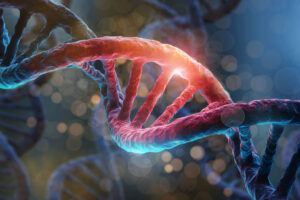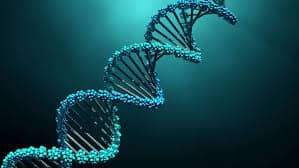Introduction

The Future of Health: Personalized Medicine and DNA-Based Nutrition
Personalized medicine and DNA-based nutrition are revolutionizing the health and wellness industry. With advancements in genomics and nutrigenomics, individuals can now receive tailored healthcare and diet plans that align with their genetic makeup. Unlike the “one-size-fits-all” approach, this precision-based method considers how our bodies uniquely process nutrients, helping us optimize our health.
What is Personalized Medicine?
Understanding Personalized Medicine
Personalized medicine, also known as precision medicine, uses genetic information to customize healthcare decisions and treatments for individuals. By analyzing a person’s DNA, doctors and nutritionists can identify predispositions to diseases, metabolic traits, and the best ways to manage health.
Why is Personalized Medicine Important?
- Improved Health Outcomes: Treatments and diets are designed to align with an individual’s genetic profile, improving efficacy.
- Disease Prevention: DNA testing helps identify risks for chronic diseases, enabling preventive measures.
- Optimized Treatments: Personal responses to medication and nutrition are better understood through genetic insights.
What is DNA-Based Nutrition?
Definition of Nutrigenomics
Nutrigenomics studies how genes and nutrition interact. It analyzes how genetic variations affect nutrient metabolism, helping create tailored dietary plans.
How It Works
- Genetic Testing: A simple cheek swab or blood test identifies specific genetic markers.
- Nutrient Processing Analysis: The test reveals how your body processes fats, carbohydrates, proteins, and vitamins.
- Customized Diet Plans: Experts design a nutrition plan based on your genes to optimize metabolism, weight loss, and overall health.

The Benefits of DNA-Based Nutrition
1. Precision in Diet Recommendations
DNA-based nutrition considers genetic differences to identify optimal foods and nutrient levels for each person. For instance:
- A person with poor caffeine metabolism may need to limit coffee.
- Those with lactose intolerance genes can adjust dairy consumption.
2. Weight Management
Nutrigenomic tests reveal how your body stores and metabolizes fat, making it easier to follow an effective weight loss plan tailored to your genetics.
3. Managing Chronic Diseases
DNA insights help reduce the risk of heart disease, diabetes, and obesity by providing targeted nutritional advice.
4. Improved Sports Performance
Athletes are using DNA-based nutrition to enhance energy, recovery, and endurance by consuming diets tailored to their genetic needs

The Future of Health: Personalized Medicine and DNA-Based Nutrition
How DNA Testing for Nutrition Works
Step-by-Step Process
- Genetic Analysis: A lab analyzes DNA samples to identify genetic markers influencing diet.
- Identifying Genetic Variations: Tests focus on genes linked to nutrient absorption, metabolism, and food intolerances (e.g., FTO gene for fat processing).
- Personalized Report: A detailed report offers dietary advice based on the findings.
Key Genetic Markers in Nutrigenomics
- LCT Gene: Linked to lactose intolerance.
- CYP1A2 Gene: Determines caffeine metabolism.
- FTO Gene: Influences fat storage and weight gain.
The Role of Artificial Intelligence in Personalized Nutrition
AI enhances DNA-based nutrition by analyzing massive datasets to provide accurate dietary recommendations:
- AI-Powered Apps: Apps now integrate genetic data with meal tracking and personalized meal plans.
- Predictive Insights: AI predicts health risks and recommends adjustments to prevent diseases.
For example, an AI-based app can analyze a user’s genetic predisposition to vitamin deficiencies and suggest meal options rich in the required nutrients.
Practical Applications of DNA-Based Nutrition
1. Tailored Meal Plans
Companies like 23andMe and DNAfit are offering customized meal plans based on genetic testing
2. Managing Food Intolerances
Individuals can identify sensitivities to gluten, lactose, and other allergens, avoiding foods that cause discomfort
3. Diabetes and Heart Disease Management
Genetic data helps individuals adopt heart-healthy diets or low-glycemic plans to prevent and manage chronic conditions

Challenges and Ethical Considerations
While personalized nutrition offers incredible potential, challenges remain:
1. Cost and Accessibility
Genetic testing can be expensive, limiting access for some populations.
2. Privacy Concerns
Storing and sharing genetic information raises concerns about data security
3. Need for Regulation
Clear guidelines are required to ensure accuracy and ethical use of genetic information in nutrition
Conclusion
The Future of Health
DNA-based nutrition and personalized medicine are transforming the way we approach health and wellness. By understanding our genetic makeup, we can optimize our diets, prevent diseases, and improve overall well-being. Advances in nutrigenomics, combined with AI technology, are making tailored health solutions more accessible than ever.
As the field evolves, personalized nutrition will likely become a cornerstone of modern healthcare, empowering individuals to take control of their health through science-backed, customized dietary plans.
The Future of Health: Personalized Medicine and DNA-Based Nutrition – Search more – https://youtu.be/YAmzlo5pbN8?si=0thVndTSctdq4r7D



